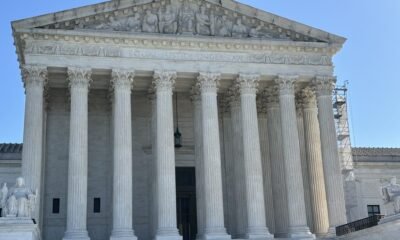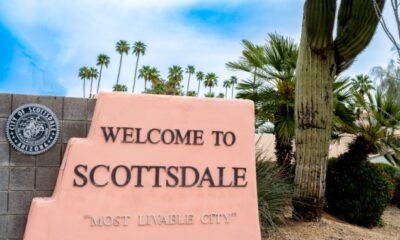Business
Judge Halts Trump’s Federal Payments Freeze in Major Legal Setback

A federal district judge ruled on Tuesday that the Trump administration must hold off on halting federal spending related to various grants and loans until at least next week. District Judge Loren L. AliKhan’s decision delivers a temporary administrative stay, which might not extend beyond a hearing scheduled for February 3.
This ruling comes after the Office of Management and Budget (OMB) announced plans to freeze payments for several federal programs, sparking confusion and frustration among Congress members. Many expressed concern over what this meant for their constitutional spending authority, with both Democrats and Republicans seeking clarity.
Shortly after the planned action was reported, AliKhan heard arguments from both sides in the lawsuit, stating that any funding due to be paused as of 5 p.m. that day is effectively stayed. She noted that separate executive orders might not be sheltered from her ruling and instructed both parties to submit briefs later this week.
Diane Yentel, the president and CEO of the National Council of Nonprofits, voiced the need for further legal action to ensure lasting protection against OMB’s measures. “There’s much more work ahead to prevent this reckless action from proceeding long-term,” she stated.
White House press secretary Karoline Leavitt attempted to mitigate concerns regarding the spending freeze in her first briefing, emphasizing that it would not affect individual assistance programs such as Social Security or food assistance. However, questions regarding Medicaid benefits remained unanswered, even as reports indicated that Medicaid portals were down in all states that day.
Leavitt maintained that the temporary pause had the necessary legal backing and was constitutional, but later admitted she didn’t fully grasp its implications. Meanwhile, Maine Republican Sen. Susan Collins criticized the broad nature of the OMB’s order, noting its potential adverse effects on various vital services.
The OMB’s initial memo indicated a wide-ranging impact on federal financial assistance, sparking alarm among lawmakers. Notable programs identified for the spending freeze include Head Start, numerous Veterans Affairs programs, and various grants aimed at combating sexual assault.
Despite assurances that Medicaid would remain unaffected, Oregon Democratic Sen. Ron Wyden reported access issues with Medicaid portals, calling the freeze an assault on health insurance for millions. Yentel further criticized the vague definitions in the OMB memo, which left many in the dark about the extent of the freeze’s reach.
In reaction to the executive order, multiple organizations, including the National Council of Nonprofits and the American Public Health Association, quickly filed lawsuits. Democratic attorneys general also prepared legal challenges, arguing that the spending pause oversteps presidential authority.
In a letter to acting OMB Director Matthew J. Vaeth, top Democrats on the Appropriations Committees expressed concerns about the implications for Americans reliant on federal funding. They underscored the necessity for Congress’s approval of federal spending and the importance of adhering to established laws.
Historically, Congress holds the “power of the purse,” a principle outlined in the Constitution that prohibits the president from disregarding appropriations. Despite ongoing discussions in the Senate about the implications of the spending freeze, concerns linger about its impact on essential services.
As legislators await further clarification, many expressed hope that the temporary freeze would ultimately steer funding towards a more efficient allocation system without halting necessary services. The situation remains fluid, with ongoing discussion amongst lawmakers about maintaining essential support for vulnerable populations.


















